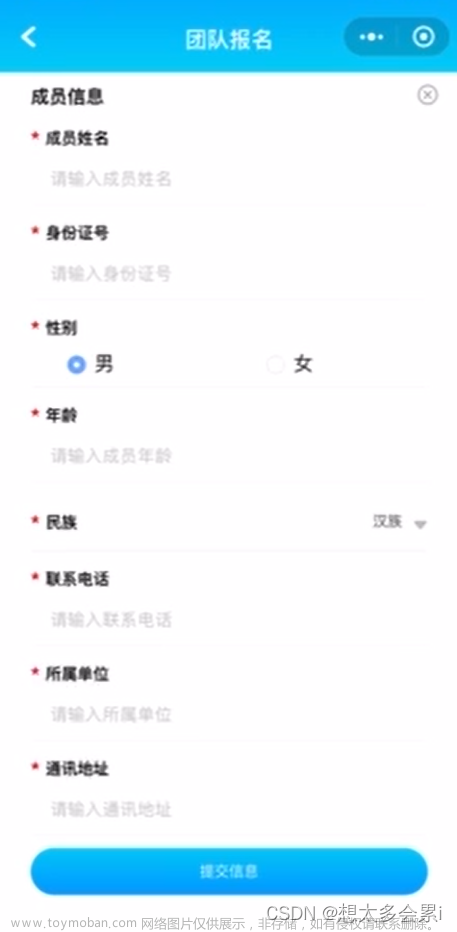C程序设计语言 (第二版) 练习 5-18
练习 5-18 修改dcl程序,使它能够处理输入中的错误。
注意:代码在win32控制台运行,在不同的IDE环境下,有部分可能需要变更。
IDE工具:Visual Studio 2010
文章来源地址https://www.toymoban.com/news/detail-788515.html
代码块:
#include <ctype.h>
#include <stdio.h>
#include <stdlib.h>
#include <string.h>
#define MAXTOKEN 100
enum { NAME, PARENS, BRACKETS };
enum { ERR_YES, ERR_NO };
void dcl(void);
void dirdcl(void);
int gettoken(void);
int tokentype;
char token[MAXTOKEN];
char name[MAXTOKEN];
char datatype[MAXTOKEN];
char out[1000];
int errtoken = ERR_NO;
int main() {
while (gettoken() != EOF) {
strcpy(datatype, token);
out[0] = '\0';
dcl();
if (tokentype != '\n')
printf("syntax error\n");
printf("%s: %s %s\n", name, out, datatype);
}
return 0;
}
/* dcl: parse a declarator */
void dcl(void) {
int ns;
for (ns = 0; gettoken() == '*'; )
ns++;
dirdcl();
while (ns-- > 0)
strcat(out, " pointer to");
}
void paramdcl(void);
void dirdcl(void) {
int type;
if (tokentype == '(') {
dcl();
if (tokentype != ')') {
printf("missing )\n");
errtoken = ERR_YES;
}
} else if (tokentype == NAME)
strcpy(name, token);
else {
printf("error: expected name or (dcl)\n");
errtoken = ERR_YES;
}
while ((type=gettoken()) == PARENS || type == BRACKETS || type == '(')
if (type == PARENS)
strcat(out, " function returning");
else if (type == '(') {
strcat(out, " function expecting");
paramdcl();
strcat(out, " and returning");
} else {
strcat(out, " array");
strcat(out, token);
strcat(out, " of");
}
}
void dclspec(void);
void paramdcl(void) {
do {
dclspec();
} while (tokentype == ',');
if (tokentype != ')')
printf("error: missing ) in parameter declaration");
}
int typespecifier(void);
int typequalifier(void);
void dclspec(void) {
char temp[MAXTOKEN];
temp[0] = '\0';
gettoken();
do {
if (tokentype != NAME) {
errtoken = ERR_YES;
dcl();
} else if (typespecifier() || typequalifier()) {
strcat(temp, " ");
strcat(temp, token);
gettoken();
} else {
printf("error: unknown type in param list\n");
errtoken = ERR_YES;
}
} while (tokentype != ',' && tokentype != ')');
strcat(out, temp);
if (tokentype == ',')
strcat(out, ",");
}
int compare(const void *s, const void *t);
int typespecifier(void) {
static char *type[] = { "char", "int", "void" };
char *pt = token;
if (bsearch(&pt, type, sizeof(type)/sizeof(char *), sizeof(char *), compare) == NULL)
return 0;
return 1;
}
int typequalifier(void) {
static char *type[] = { "const", "volatile" };
char *pt = token;
if (bsearch(&pt, type, sizeof(type)/sizeof(char *), sizeof(char *), compare) == NULL)
return 0;
return 1;
}
int compare(const void *s, const void *t) {
char **chs;
char **cht;
chs = (char **) s;
cht = (char **) t;
return strcmp(*chs, *cht);
}
int getch(void);
void ungetch(int);
int gettoken(void) {
int c;
char *p = token;
if (errtoken == ERR_YES) {
errtoken = ERR_NO;
return tokentype;
}
while ((c = getch()) == ' ' || c == '\t')
;
if (c == '(') {
if ((c = getch()) == ')') {
strcpy(token, "()");
return tokentype = PARENS;
} else {
ungetch(c);
return tokentype = '(';
}
} else if (c == '[') {
for (*p++ = c; (*p++ = getch()) != ']'; )
;
*p = '\0';
return tokentype = BRACKETS;
} else if (isalpha(c)) {
for (*p++ = c; isalnum(c = getch()); )
*p++ = c;
*p = '\0';
ungetch(c);
return tokentype = NAME;
}
return tokentype = c;
}
#define BUFSIZE 100
char buf[BUFSIZE];
int bufp = 0;
int getch(void) {
return (bufp > 0) ? buf[--bufp] : getchar();
}
void ungetch(int c) {
if (bufp >= BUFSIZE)
printf("ungetch: too many characters\n");
else
buf[bufp++] = c;
}
文章来源:https://www.toymoban.com/news/detail-788515.html
到了这里,关于C //练习 5-18 修改dcl程序,使它能够处理输入中的错误。的文章就介绍完了。如果您还想了解更多内容,请在右上角搜索TOY模板网以前的文章或继续浏览下面的相关文章,希望大家以后多多支持TOY模板网!








